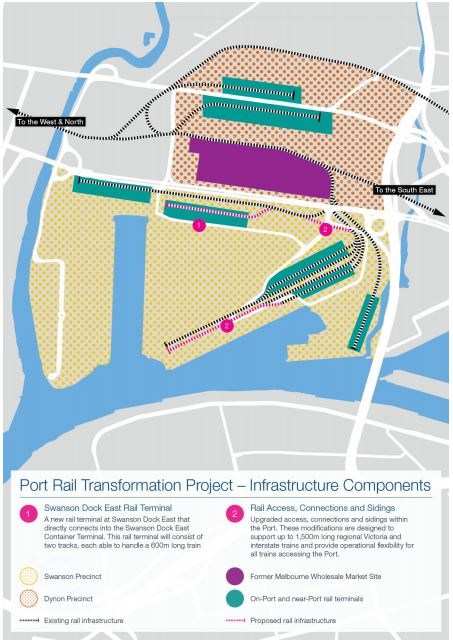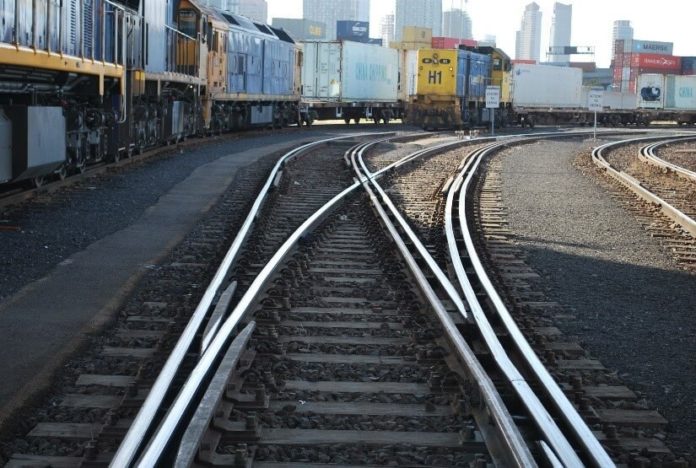The Port of Melbourne welcomes the Government’s support of the new US$ 83.7 million Port Rail Transformation Project (PRTP) to reduce truck movements, improve productivity and further enhance Australia’s premier port.
The port’s rail solution will be developed over the next three years and will see more containers moved by rail more efficiently, by-passing roads in inner Melbourne, says the Port of Melbourne.
Port of Melbourne CEO, Brendan Bourke said today “The port’s rail solution is a critical and missing link in Melbourne’s transport and supply chain network. It expands the rail offering for freight and delivers environmental benefits by reducing truck movements, congestion and pollution.
“Everyone we talk to says rail is a good thing and industry has called for a rail solution for more than a decade. Port rail shuttle trains will have a capacity of 84 Twenty-foot Equivalent Units (TEU) containers, in comparison to a B-Double truck having a capacity of three TEU. This project also supports regional exports by taking cost out of the rail supply chain.
Infrastructure components of the PRTP

The project is being funded by an increase in the tariff on full import containers of US$ 6.53 per Twenty Foot Equivalent Unit (TEU) to take place no earlier than 1 April 2020.
Brendan Bourke adds that the port’s rail solution is a vital piece of infrastructure delivered with no cost to taxpayers and export market, especially farmers, will benefit from this project.
“The project also provides industry reform and drives efficiency in the rail supply chain. It is the result of significant engagement with industry,” said Port of Melbourne CEO.
The PRTP is very important for the port’s “Rail Access Strategy – Our Plan For Rail”, which is a comprehensive plan for an integrated freight rail network across Victoria, according to a release.
“We are committed to investing in the port – it is a key driver of economic activity in the State. We want to move freight in and out of the port more quickly and to deliver the everyday goods needed to support our daily lives,” said Brendan Bourke.







